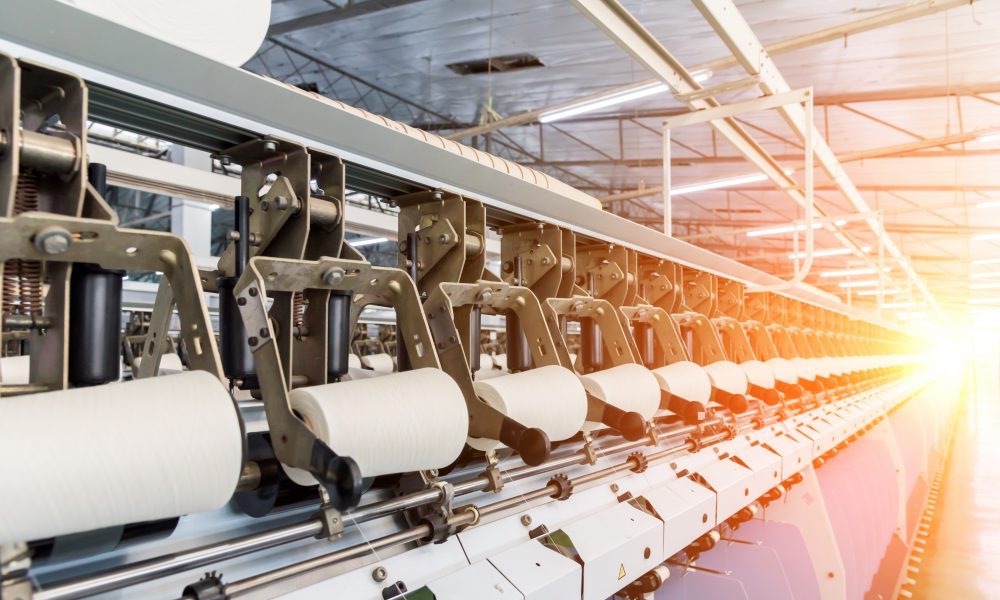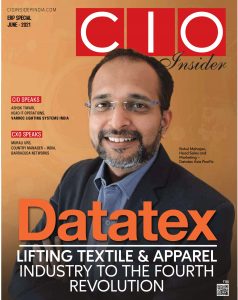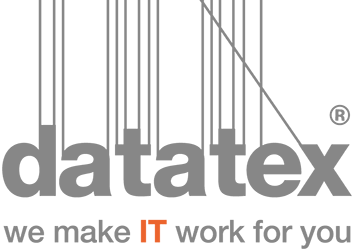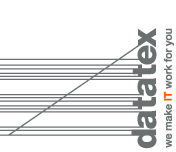
CIO Insider Magazine Certificate
Interview with Rahul Mahajan – Datatex Head of Sales & Marketing APAC
 Datatex has been nominated as one of the 10 best ERP solutions supplier by CIO Insider Magazine and our Head Sales & Marketing for APAC Rahul Mahajan, had a full interview about the role of Datatex in the market digital transformation and our unique proposition.
Datatex has been nominated as one of the 10 best ERP solutions supplier by CIO Insider Magazine and our Head Sales & Marketing for APAC Rahul Mahajan, had a full interview about the role of Datatex in the market digital transformation and our unique proposition.
Datatex: Lifting Textile & Apparel Industry To The Fourth Revolution
The Industry 4.0 is swiftly maneuvering along the path paved by connectivity technologies, driven by data. The founder of the World Economic Forum, Klaus Martin aesthetically defines it this way: “The Fourth Industrial Revolution represents a fundamental change in the way we live, work and relate to one another. It is a new chapter in human development, enabled by extraordinary technology advances commensurate with those of the first, second and third industrial revolutions.” Everything from Connectivity to Data, Analytics, and Artificial Intelligence is redefining the manufacturing industry in a whole different way and with business continuity at stake, no company can afford to stay away from these dynamic technology trends.
While most of the automation-aspirants in the manufacturing realm are only tying their shoe-laces, a Milan-based IT solutions company, Datatex is assisting organizations in the textile industry to go for their sprint by equipping them with the latest technology solutions. With the largest install base of textile software, Datatex today is the world’s leading supplier of IT software solutions for the global Textile and Apparel Industry, having customers in 45 countries and five continents. Datatex’s customer ecosystem incorporates large multinational textile companies with thousands of employees, medium-sized companies, and small artisan manufacturers the world over. The company’s flagship ERP product, NOW (Network Oriented World) is well known for its excellent scalability and fitting textile companies of any size and kind – all along the entire supply chain. It was a pleasure to engage in an exclusive conversation with Rahul Mahajan, who heads Datatex’s Sales & Marketing operations in the Asia Pacific.
Datatex is a leading supplier of IT software solutions in the niche global Textile and Apparel Industry. What is the story behind Datatex choosing this industry? Also, as a global leader, how do you contribute to the IT industry in terms of setting the right standards for quality and innovation?
Datatex was founded in 1987, when partners of two different companies Datasys and Rovetex came together. Datasys is one of the leading Italian software houses, headquartered in Milan, while Rovetex is an important Swiss-Israeli consulting firm catering to the textile industries. In other words, Datatex is the result of an ideal formula, comprising a couple of successful businessmen in the IT world as well as international consultants for the textile world. Hence, it was born to become the leading supplier of ERP solutions for textile companies. After 35 years we can say that this goal has been achieved, because at present, the software owned by Datatex – NOW ERP, which is translated in 22 languages – is the world’s best-selling vertical industry management system. We have customers in 45 countries and offices in Italy, Israel, India, USA, Switzerland, Germany, and Serbia.
NOW by Datatex is, to date, the only complete ERP solution that caters to all business needs in every sector of the textile industry, from spinning to weaving, from printing to finishing, and from dyeing to packaging. In this sense, it represents a unicum at international level.
Datatex products aim to become, and in part al-ready are, the reference IT standard worldwide for the textile industry, and for this reason, we invest more than 10 percent of Datatex’s turnover in research and development every year. Today, in partnership with Datasys, Datatex is working on some interesting verticalization of NOW for other industries, but it is quite clear that the textile industry is and will always be the core business and the unchangeable DNA of our company. Our laboratory is devoted daily to the continuous improvement of software solutions that caters to this sector, with a process of innovation that never stops.
The global ERP software industry is anticipated to grow at a CAGR of 8 percent between 2021 and 2026 to reach a value of almost $60 billion by 2026. What is the kind of role that Datatex is playing in the exponentially growing digital transformation market and where are you currently positioned in the industry?
Datatex suite consists of multiple solutions and plat-forms designed exclusively to meet the unique industry needs. For instance, within the Textile business, there are multiple unique processes like Spinning, Weaving, Knitting, Dyeing, and Garment Manufacturing. There are textile organizations having all under one roof (vertically integrated) or having only one of the processes across one or multiple plants. No two implementations are the same when it comes to textiles.
Depending on the end-product (which is ultimately sold in retail) – be it Denims, T-Shirts or Suites, just the Fabric or Terry Towel or even a Carpet, threaded or non-woven material – the value chain needs a significant change in planning, production and distribution management. It has been exciting to help more than 800 organizations across the globe to efficiently manage their complex manufacturing processes.
Since 1987, we have been travelling abreast of technological advancements, and hence keeping our products at the bleeding edge, especially with special focus on managing huge data size with highly reliable technology components. Our solution suite consists of ERP, Planning Solutions and Shopfloor Solutions for Industry 4.0 among others.
ERP forms the base of any sort of digital transformation of an organization. More adaptive and collaborative the ERP, the better the organization’s automation and digitization journey becomes. Datatex’s solutions have always been adaptive to the needs of the Textile industry. During the first decade of 2000, our technical lab in Milan took major steps towards modernizing the ERP so that our customers can get access to the latest technological advancements, including everything from operating systems to databases and integration capabilities with any third party solution. We perceive our position as the global leader in providing software solutions exclusively to the Textile Industry as a responsibility and are working towards new geographies and segments to further consolidate our position.
What’s the unique proposition that you offer? Do you have any SOP in place to understand clients’ & their employees’ pain points and offer highly customized problem-centric ERP solutions? Tell us about the level of employee experience we are talking about.
Our unique proposition is our dedication towards the textile industry and wisdom that comes along. When I say textile, it includes fiber to garment manufacturing processes for a wide horizon of products. In the textile industry, any market segment and any type of company can work with Datatex products, and depending on the specific needs of each reality, and the budget available, our technicians can find a solution for everyone that combines quality with cost-effectiveness.
Even with the highly mechanized manufacturing processes, success in the textile industry takes special skills across the entire value chain. It is of utmost importance that the employees are able to use IT solutions to optimize their skills. Datatex’s standard functionalities like intelligent product coding, pattern, recipe, multiple unit of measures, quality system, and textile costing help users plan and see the shopfloor digitally. All our solutions are highly configurable to meet various end-user requirements.
The end-user (textile employees) experience is of paramount importance. Our ERP can be deployed on a handheld device, which will help users make all the entries in real time in a hassle-free manner. It can be integrated directly with machines to eliminate the mundane data entry tasks. Furthermore, our planning solutions center on business logic and plan the shopfloor automatically for the planner (textiles) – who then only needs to manage the exceptions in-stead of the repetitive tasks.
Tell us about your portfolio of solutions and the technology framework and innovations that are involved.
Datatex has a diversified portfolio of solutions. Our web based J2EE ERP (NOW) comprises modules for managing business transactions in sales, purchase, planning, production, warehousing, costing, plant maintenance, quality management, HR payroll and finances. We also offer advanced capacity balancing (MCM) and production scheduling (MQM) solutions, CATS for fabric defect recording and cut optimization, CAMS solution for shop floor data recording, and machine interface for automatic data recording.
When it comes to the IT industry, organizations’ expectations today exceed beyond just products & services and they are in pursuit of a holistic experience, starting from the sales pitch to compressive training and product support.
Datatex technicians and salespeople have always been fluent in the textile language. They have specific know-how that others do not have, and hence are able to follow the 360 degree requirements of the customers and respond to their in-depth requests and needs; not to mention that they can also be real textile consultants, and not just IT technicians. Needless to say, this is certainly impossible for generalist and non-specialized software houses.
The customer wants, rightly, a personalized product, and NOW by Datatex from this point of view possesses a great deal of flexibility because it comprises several modules that adapt to every aspect of the textile business. Additionally, it can be freely configured, evaluating which modules to install and adapting them from time to time according to the needs of the customers. This eliminates the need to write custom programs. Written in Java EE J2EE, NOW also ensures technological independence from the hardware platform and compatibility with all the main databases, granting an easy integration with any other software.
What are some of the latest challenges faced by your customers? How do you help them with those challenges?
The prominent challenges faced by clients include the proper management of raw material such as dyes & chemicals, trims & accessories and finished goods inventory (fabrics or garments), the lack of traceability in production cycle specially when product variety is high, and SOP dilution & mismatch when it comes to plan vs implementation. All this with lesser order quantities, greater pressure on margins and the need for intact quality.
Our solutions tick all these boxes. It enables optimum use of raw material and fabric inventory by auto replenishment, and better stock keeping and error free issue/ returns, while automatic netting at planning level helps eliminate excess ordering of the materials. Datatex maintains sales order, production order, and material receipt traceability across production lots, and the improved traceability results in better visibility and control over production processes. Our solutions are also designed to ascertain practical controls and SOP. On the other hand, quality is a function of input material and machine performance. Datatex advanced plant maintenance and quality management modules ensure preventive maintenance of plans and that quality parameters are followed across the organization.
“Datatex products aim to become, and in part already are, the reference it standard worldwide for the textile industry, and for this reason, we invest more than 10 percent of Datatex’s turnover in research and development every year”
Above all, our products are highly customizable as per the dynamic business requirements. Hence, be it business expansion into a new category, forward or backward integration, or simply a new plant set up, our customers could do it on their own with a little help from our support team. In other words, our IT solutions become business enablers and contribute to smooth business expansion. Well, as far as the expansion is concerned, when the number of customers increase, so does the orders. In order to deliver on time, the order needs to be auto allocated to ensure utilizing the right machine for the right job. Our planning solutions cater to this need and have time and again improved planning efficiencies.
Tell us about your workplace? How well have you adapted to the work-from-home model?
Every part of the world has been affected by Covid-19 in some way. The situation required all Datatex branches across the continents to engage in smart working during the most difficult moments of the epidemic, and more often during the less serious moments. We assure that the right social distancing norms and the correct safety measures are followed on a daily basis.
Datatex worked very well even during the hardest periods of the pandemic, and we signed important contracts in 2020 and 2021 with textile companies in different countries. Our employees have always given their best, trying to adapt as much as possible to an unprecedented and complex situation, which required a partial recourse to working from home to ensure the safety of workers. However, we believe in the value of teamwork, and live & in-person collabo-ration between people in different offices. When the Covid emergency will be over – hopefully – we will give much more space as we have always done in the past to work in the office.
What’s Datatex’s future roadmap?
As an organization, Datatex aims to be the best technological partner for the textile and apparel organizations, by enhancing the productivity and the efficiency of our customers’ business.
Our goal is to empower our customer’s businesses by providing the best textile & apparel planning & scheduling functions, and comprehensive & accurate costing functionalities specific for their needs. To achieve this goal, we continuously improve our software suite NOW. We are committed to deliver key information to the management, helping them make well-informed & optimized business decisions and ensure operational support during the production processes.


